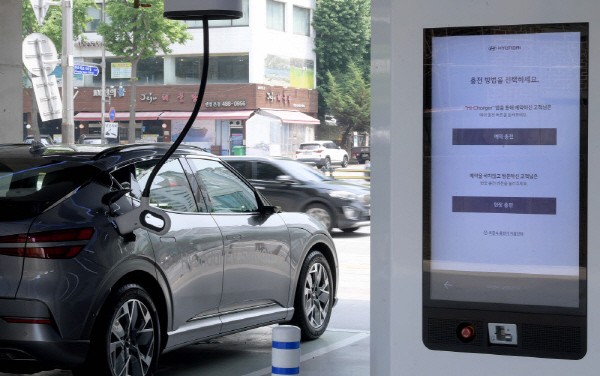Electric vehicle charging rates will also increase next month. Korea Electric Power Corporation (KEPCO) raised the electricity rate by KRW 5 per kWh. The special discount system for charging electric vehicles which has been in effect for three years will end at the end of this month. If the abolition of the special discount system is confirmed, the charging rate is expected to rise from the current KRW 292 per kWh (50kW rapid) to KRW mid-300.

As of July 1st, KEPCO delivered a notice to the Ministry of Trade, Industry and Energy to abolish the special system for charging electricity rates. In order to expand the supply of electric vehicles, KEPCO's monthly 'basic fee waiver' and 'electric charge reduction of 50%' depending on usage are a system that reduces the range of discounts in stages. The cost of the discount has been covered by KEPCO.
According to the system, the charge rate of the Ministry of Environment has increased sequentially from KRW 173.8 per kWh from January 2017 to KRW 225.7 in July 2020 and KRW 292.9 to KRW 309.1 in July 2021. If this system is implemented as scheduled, the charging fee for electric vehicles will rise to KRW 313.3 per kWh from July. If the increase in the electricity rate of KRW 5 per kWh is applied, the charging rate based on 50 kW fast charging will rise from the current KRW 292 per kW h to the KRW early/mid 300 won range. If one had to pay KRW 21,024 to charge Hyundai Motors' IONIQ 5 (based on a battery capacity of 72㎾h) using a fast charger, the cost would increase up to the KRW mid-20,000 range in the future.
The Ministry of Trade, Industry and Energy and the Ministry of Environment are planning to accept the increase in electricity rates and the abolition of the special system. However, it is reported that an alternative to preserving charging costs through taxes is being considered in order to maintain the trend of promoting the spread of electric vehicles. A government official said, "According to the original three-year plan, the Ministry of Trade, Industry and Energy and the Ministry of Environment are seeking separate support plans in consideration of the abolition of KEPCO's special discount system, but nothing has been decided so far."
The private charging industry is in favor of raising charging rates in line with the rate hikes of KEPCO and the Ministry of Environment (Environment Corporation), the main operator of South Korea's largest fast-charging facility.
By Staff Reporter Tae-jun Park gaius@etnews.com